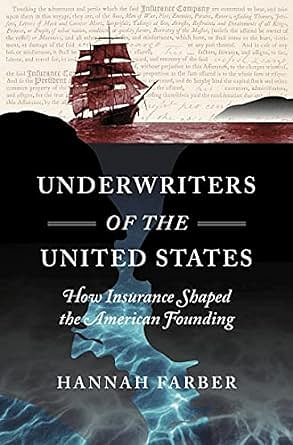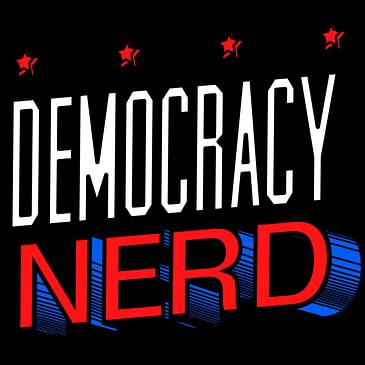In this episode of "Democracy Nerd," host Jefferson Smith discuses the intersection of insurance, entrepreneurship, and the American founding with guest Hannah Farber, a history professor at Columbia University and author of the book "Underwriters of the United States: How Insurance Shaped the American Founding."
 Underwriters of the United States (bookshop.org)
Underwriters of the United States (bookshop.org)
Farber discusses how early American entrepreneurs, armed with a keen understanding of risk and opportunity, played a pivotal role in shaping the nation's trajectory. Farber's research unveils the risks undertaken by visionary insurance underwriters, who bet on the fledgling United States despite its uncertain future. Through their investments, these individuals not only navigated the precarious waters of uncertainty but also amassed immense wealth, laying the groundwork for American prosperity.
Central to Farber's narrative is the examination of how the burgeoning insurance industry intertwined with the nascent American economy, particularly in the realm of international trade. With the birth of a new nation came unprecedented challenges and opportunities in importing and exporting goods. Farber's book illuminates the complexities and realities faced by merchants as they grappled with the intricacies of transatlantic commerce, shedding light on the indispensable role of insurance in mitigating risks and fostering economic growth.
The conversation further explores the symbiotic relationship between American insurance companies and merchant vessels during the tumultuous early decades of the 19th century. Against the backdrop of global conflicts, Farber explains how insurance underwriters thrived amidst chaos, capitalizing on the lucrative opportunities presented by wartime trade. As the world grappled with geopolitical turmoil, American insurers and merchants emerged as key beneficiaries, solidifying their status as indispensable pillars of the nation's economic landscape.
With Farber's insightful analysis, listeners are transported back in time to witness the dynamic interplay between risk-taking entrepreneurship, insurance innovation, and the forging of American identity. "Democracy Nerd" offers an exploration of the intricate tapestry of forces that shaped the foundation of American prosperity, inviting audiences to reconsider the often-overlooked role of insurance in the nation's historical narrative.

